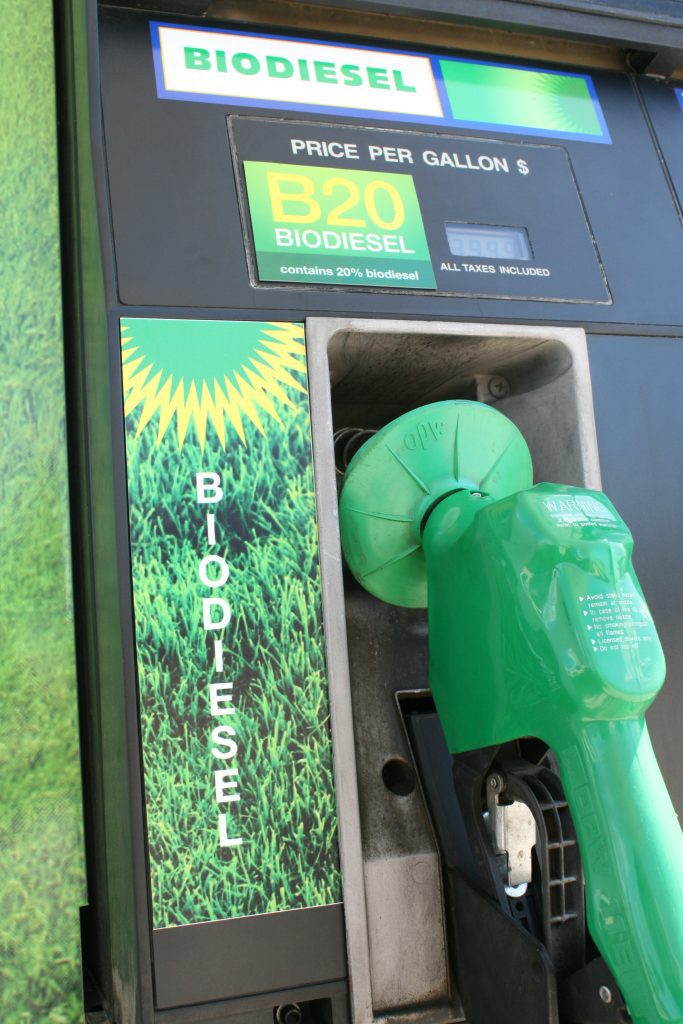The 2023 Environmental Conference and Winter Technical Meeting highlighted alternative fuels and technologies as consumers seek environmentally friendly energy solutions and transportation sector stakeholders aim to meet decarbonization goals.
The event was presented by Greater Indiana Clean Cities in partnership with the Indiana Chamber of Commerce and Air and Waste Management Association Indiana Chapter.
Kerri Garvin, executive director of Greater Indiana, says she was pleased the event brought together industry leaders from diverse alternative fuel and transportation sectors including ethanol, biodiesel, natural gas, propane, battery electric, and hydrogen.
“We wanted to show that collaborative effort and how many people are working in this space and all the great things they’re doing. That’s the story to tell in Indiana and so it was really cool to hear from each and every one of them,” she says. “…Greater Indiana promotes all the alternative fuels and technologies to show there’s not a one-size-fits-all solution. There are different applications, uses, levels of comfort, and affordability. So, people may turn to biofuels, propane, natural gas, hydrogen, or electric depending on those things.”
Corn-based ethanol is good for the environment, consumers, and farmers

Indiana Corn Marketing Council (ICMC) Biofuels Director Helena Jette, who is also the board president of Greater Indiana, spoke on the Alternative Fuels panel about the importance of increasing market access for farmers and growing international and domestic demand for corn in all forms, including ethanol.
“Indiana’s total corn production for 2023, so far, is about 1.1 billion bushels. With 40 percent of the state’s corn crop going to ethanol, it’s a critical market for Indiana farmers,” she says.
Jette was joined on stage by Jake Comer, vice president of market development with Growth Energy, a trade association working to realize the full potential of American biofuels to save consumers money, lower carbon emissions, and build a stronger economy.

Indiana’s 15 biorefineries produce about 1.4 billion gallons of ethanol each year. The fuel benefits the environment with the fuel contributing up to a 50 percent reduction in greenhouse gas emissions compared to petroleum.
Jette works with fuel retailers to promote higher blends of ethanol such as Unleaded 88, a blend of 15 percent ethanol with 85 percent gasoline and E85, a blend of 85 percent ethanol and 15 percent gasoline depending on the site.
“Unleaded88 (E15) and E85 Flex Fuel is how we brand these fuels at retail sites in Indiana,” she says. “Drivers see the yellow and blue nozzles at the pump for these fuels. That consistency is key for how we market renewable fuels in Indiana currently,”
Jette says the ethanol industry is made possible with the help of corn farmers, biorefineries, fuel retailers, consumers, and auto manufacturers. This collaboration is necessary for maintaining markets and growth.
Soybean-based biodiesel is a drop-in fuel
Jette, representing the Indiana Soybean Alliance, spoke on the importance of improving the viability of soybean growers and industry partners by accelerating demand for soybean oil, the main feedstock used in biodiesel.
“Soybean farmers are producing more soybeans on the same acreage of land with more efficiency by bushel,” she says. “That means there are enough soybeans for food and fuel.”
She was joined on stage by David Cobb, director of federal affairs with Clean Fuels Alliance America, a national trade association representing biodiesel, renewable diesel, and sustainable aviation fuel.
ISA is committed to making biodiesel readily available for consumers. There are seven soybean crushing plants in Indiana with 300 million pounds of soybean oil. About 24 percent of the state’s soybean production is going into biodiesel production each year.

Biodiesel is a clean-burning alternative fuel produced from domestic, renewable resources, such as soybeans in Indiana. Indiana produces more than 100 million gallons of biodiesel each year, which has a positive environmental and economic impact.
The drop-in fuel has been approved for use in most diesel engines. B20, a blend of 20 percent biodiesel and 80 percent petroleum diesel, has demonstrated environmental benefits of over 70% reduction of GHG emissions compared to petroleum diesel.
Jette spoke about the B20 Club of Indiana, a partnership between ISA and the American Lung Association, that supports Indiana-based fleets running on B20 blends or higher. Since the program started, 9.3 million gallons of B20 have been used by more than 2500 vehicles.
A common theme of the event is that all the fuels and technologies will be needed to meet ambitious sustainability and climate goals. Biofuels continue to be a sustainable energy solution that can reduce carbon emissions and transition to a greener future.



